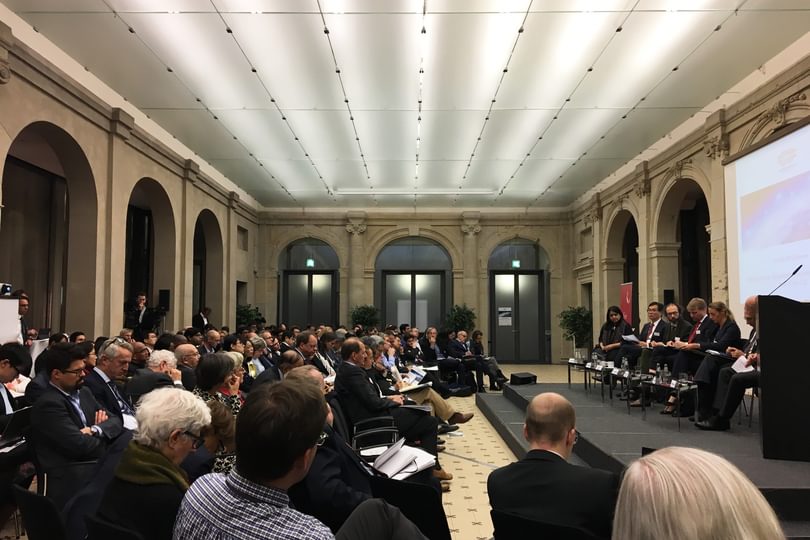
The Oxford Martin School’s Director, Achim Steiner, joined fellow leaders of research institutes and think tanks in Berlin on 1 December for a conference commencing the work of the T20, a network of organisations chosen to provide expert policy advice to the G20, of which Germany this year has Presidency.
The School has been invited to be part of the T20, and will contribute to the work of two task forces: one on social cohesion and inequality, and one on the digital economy. Each task force will produce a policy brief aimed at G20 leaders, providing innovative and implementable policy options. From the School, Brian Nolan, Director of the Oxford Martin Programme on Inequality and Prosperity, will co-author a policy brief on inequality, while Carl Frey, Co-Director of the Oxford Martin Programme on Technology and Employment, will co-author a policy brief on skills in the digital age.
The T20 is being led by the German Development Institute (DIE) and the Kiel Institute for the World Economy, who have also invited the School to be part of the T20’s Council for Global Problem-Solving. Comprising top-flight institutions including Brookings and Bruegel, the Council generates policy proposals and policy analyses for the G20 and helps monitor and evaluate its progress, with the aim of securing continuity in policy advice and consistency in implementation from one G20 Presidency to the next.
Delivering the concluding remarks on the first day of the conference, Mr Steiner said the work of the T20 was very much aligned with the remit of the Oxford Martin School to tackle 21st century challenges and deliver solutions, not just analysis.
“This has been an exhilarating day and I have been reflecting on the identity of the T20 in relationship to the G20,” he said. “It is about thinking, about providing evidence-based analysis, not just about consulting or providing advice that was asked for. It is about rigour of research and empirical evidence, a methodological and analytical understanding of complex issues.
“It is more important now than ever to act cohesively, and for the G20 to rescue an appreciation of globalisation, which has become emblematic of failure of economic and governance systems. People are reacting to this by voting out of anger and frustration. We must articulate a positive narrative to give a vision of economic transformation, and perhaps the greatest hope is from the Sustainable Development Goals (SDGs) now being an integral part of this process. I think they have been the missing half of the G20 discourse.
“I hope that we can help to make the G20 what many would love it to be: a group of countries who are drivers of transformation and innovation, while being conscious that they have a leadership responsibility, and not simply an opportunity to dominate global discourse due to the size of their economies.”